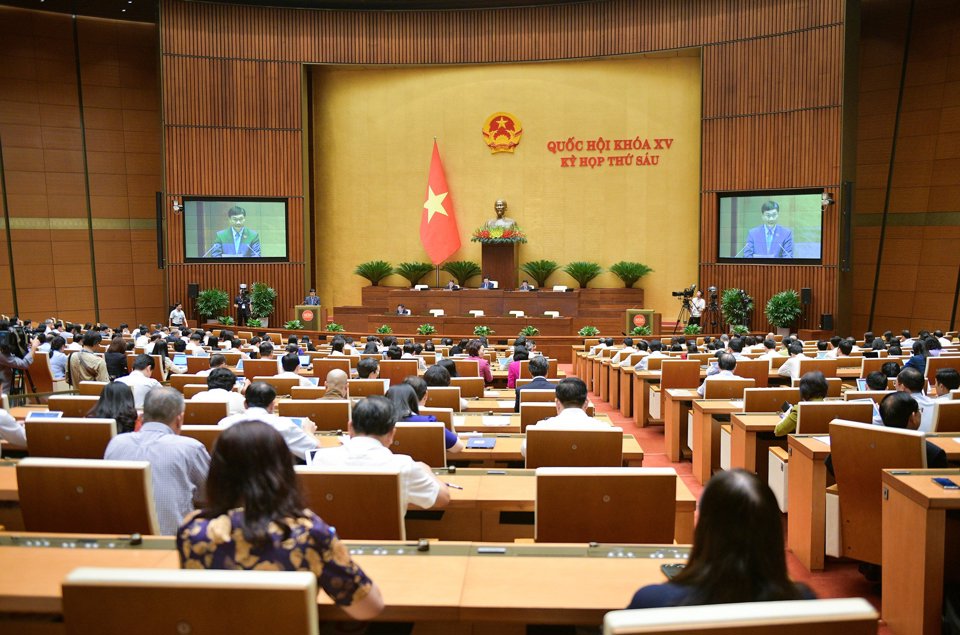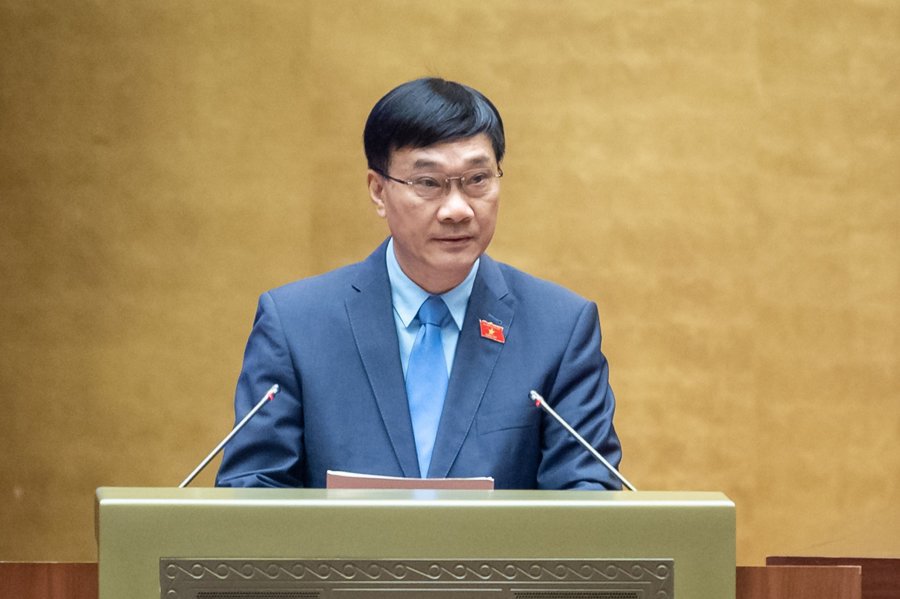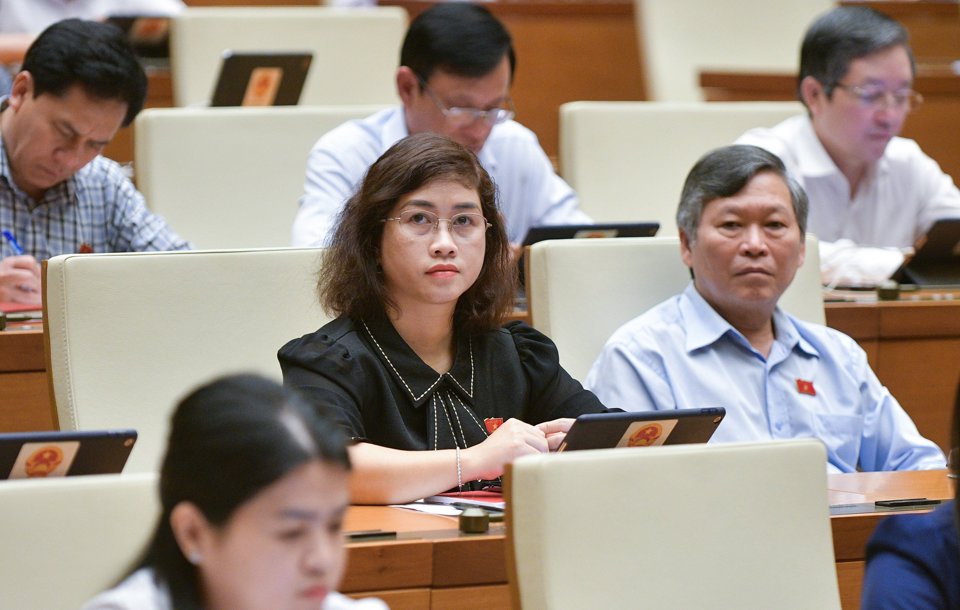Vietnam National Assembly sets 6-6.5% GDP growth target for 2024
The target underscores the Government's commitment to fostering sustainable economic and social development.
The National Assembly today [November 9] ratified a resolution on socio-economic development for 2024 with the endorsement of 90.5% of the deputies present, including a GDP growth target of 6-6.5%.
| Overview of the session. Photos: quochoi.vn |
The growth target is similar to the one set for 2023. However, due to the challenging global economic conditions influenced by geopolitical conflicts, this year's GDP growth is forecast to be just above 5%.
Among the key economic indicators, the plan includes an inflation target of 4-4.5% and a GDP per capita range of approximately $4,700-$4,730.
During the discussion session, some deputies had earlier expressed concerns about the economic uncertainties in 2024, suggesting that the 6-6.5% GDP growth target was quite ambitious and should be revised to a range of 5-6%.
Chairman of the Economic Committee Vu Hong Thanh explained that the GDP scenario for 2024 was developed taking into account favorable factors, challenges, and the goals of the five-year social and economic development plan (2021-2025).
The plan focuses on the main growth drivers: private and foreign direct investment, public investment, state-owned enterprises, consumption, tourism, and exports. Furthermore, critical national projects with far-reaching impacts are being accelerated to become operational next year.
“The 6-6.5% GDP growth forecast for next year underscores the Government's commitment to fostering sustainable economic and social development,” said Thanh.
However, to achieve this objective, Thanh recommended a more proactive governance approach by the Government.
The resolution also outlines a target for the share of the processing and manufacturing industries in the GDP at 24.1-24.2% and a labor productivity growth rate of 4.8-5.3%. These figures are lower than the 2023 targets by 1.3-1.6% and 0.2-0.7%, respectively.
The deputies suggested keeping the 2024 plan similar to the current year, but Thanh clarified that these targets are contingent on the scale of GDP, the processing and manufacturing industries, and the dynamism of the labor force. In 2024, with a GDP growth rate target of 6-6.5%, it is expected that there will be approximately 51.8 million workers and a growth rate of 7.83% in the industrial and construction sector.
| Chairman of the Economic Committee Vu Hong Thanh. |
In 2024, the global and regional situation is expected to remain complex and uncertain, which will affect the processing and manufacturing industry due to the incomplete global market recovery and the shortage of orders.
In terms of the labor force, economic restructuring will result in a gradual movement of workers between different economic sectors.
"A portion of the workforce will need to transition to new roles and occupations, requiring time for training, research, and adjustment," he said.
The National Assembly urges the Government to prioritize initiatives that promote economic growth, sustain macroeconomic stability, control inflation, and ensure the essential balances in the economy.
Monetary and fiscal policies should be flexible, appropriately expansionary, and focused. The resolution specifies that "money and credit markets should maintain stability, with efforts to further reduce interest rates, enhance access to capital, and allocate credit to priority sectors and growth catalysts."
The National Assembly emphasizes the need to refine mechanisms and address challenges to restore and stabilize markets, including corporate bonds, real estate, and labor. Projects that are deemed unnecessary should be canceled to prevent waste and overspending. Furthermore, the Government is urged to expedite the restructuring of the credit institution system by 2025, especially in dealing with underperforming banks.
| National Assembly deputies during the session. |
In the realm of public investment, the National Assembly calls for an acceleration of fund disbursement from the beginning of the year, greater decentralization of administrative procedures, coupled with enhanced accountability of management.
Concerning public finances, strict control of expenditures, public debt, government debt, and national external debt is essential to remain within permissible limits. The Government is encouraged to continue waiving, reducing, and extending taxes, fees, charges, and land rents, and implement debt restructuring, in addition to introducing appropriate policies related to the global minimum tax framework.














